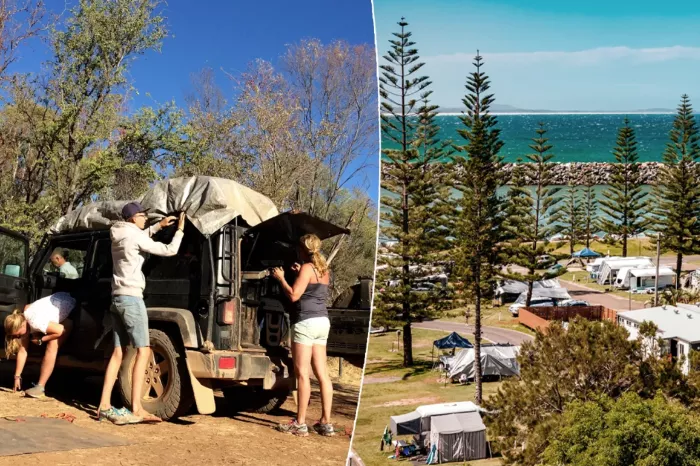A new initiative offering free camping in Victoria for Australians is facing significant criticism after a major oversight threatens to undermine its effectiveness. The scheme, launched earlier this month, with the aim of providing an affordable holiday option amid rising cost-of-living pressures. However, the growing issue of “ghost bookings” could limit its reach and leave many eager campers disappointed.
A Missed Opportunity for Many Campers
The initiative, which waives booking fees for campsites across the state, is designed to encourage people to enjoy the outdoors without the financial burden typically associated with camping. However, despite its well-intentioned goal, many campgrounds are already fully booked for the summer months. The core problem, according to critics, is that people can reserve campsites without paying any fees and without facing penalties for not showing up.
This has resulted in a significant number of “ghost bookings”—campsites reserved but left unused, preventing others from accessing them. One frustrated camper voiced their concerns on social media, explaining that there is no incentive to cancel a booking, which leads to empty sites and missed opportunities for others. “Sites will undoubtedly sit vacant over these busy periods, and families that would have happily used them will miss out,” they wrote.
Growing Concerns Over Popular Campsites
The issue has been particularly noticeable at high-demand locations, such as the Tidal River campsite in Wilsons Promontory National Park. One camper described the situation as an “absolute debacle,” while another criticized the lack of cancellation protocols, calling it “appalling.” Others have questioned whether authorities plan to track unoccupied bookings or address the situation at the end of the season.
Yahoo News reached out to Parks Victoria for clarification on how the situation would be managed, but the agency declined to comment. In its place, the official Parks Victoria website encourages campers to cancel any unused bookings, stating that this will help ensure more people can take advantage of the free camping opportunity. However, critics argue that without a formal policy or enforcement, the initiative is at risk of failing.
Call for Better Management and Streamlined Cancellations
The free camping program has sparked wider concerns over the management of bookings and the rise of ghost camping across Australia. Michelle and Heatley Gilmore, the creators of the Camps Australia Wide guide app, argue that the lack of a clear strategy to manage cancellations undermines the purpose of the initiative. “If you’re going to introduce a new policy, you need to manage it,” the couple told Yahoo News. “They can’t just put their hands up and say it’s not their responsibility.”
The Gilmores suggest that an effective way to reduce ghost bookings is to streamline the cancellation process. They propose sending reminder emails or texts to campers, offering them an easy and quick way to cancel if they no longer plan to use their reservation. “If there’s no pain in canceling, there’s no reason for people to do it,” they said.
Other States Addressing the Issue
Queensland has taken a more proactive approach to tackling ghost camping, introducing fines of up to $322 for campers caught making ghost bookings. However, critics argue that many other states, including Victoria, have not done enough to prevent the issue from escalating.
“Ghost bookings are happening all over Australia,” Michelle Gilmore stated, underscoring the need for a national approach to address the problem.
As the free camping initiative continues into the summer months, the success of the program may hinge on whether authorities can address the issue of ghost bookings and ensure that vacant campsites are made available to those who truly need them. Without a more robust management system, many Australians may miss out on the opportunity to enjoy a cost-free outdoor experience.
Related topics
- Pe’ahi Challenge: Jaws Contest Goes Digital with Cash Prizes
- 16th Annual ‘Camping for Hunger’ Helps Local Families
- Camping Banned at Popular SA Beach to Protect Environment

